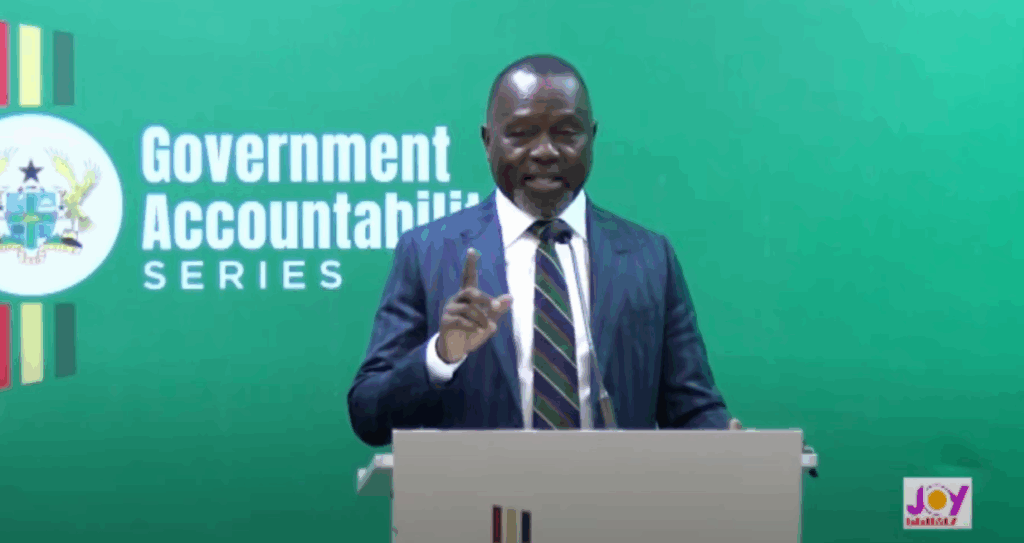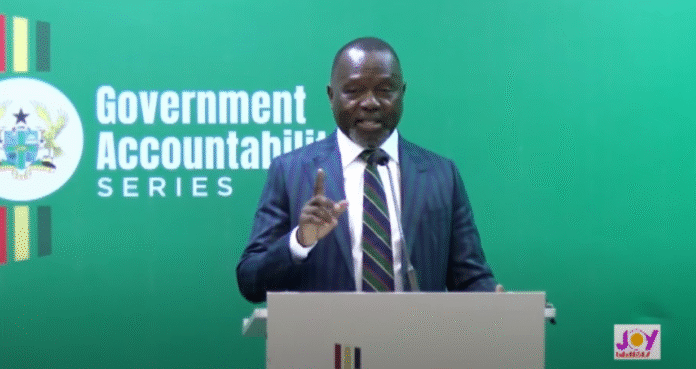
Attorney-General and Minister for Justice, Dr Dominic Ayine, has disclosed that the long-awaited trial over the controversial Accra Sky Train project will commence before the legal vacation begins on 31st July 2025.
Speaking at the Government Accountability Series at the Jubilee House on Monday, 28th July, Dr Ayine provided updates on several high-profile corruption cases, including the Sky Train matter.
“In the Sky Train trial, we have concluded the case management conference,” he announced.
He noted that delays have been caused by a change of solicitors and repeated medical excuses submitted by Prof Christopher Ameyaw-Akumfi, the second accused, as well as a recent medical excuse from the lawyer of the first accused, Mr Solomon Asamoah.
“But for the change of solicitors and the multiple medical excuses of the second accused person, that is Prof Ameyaw Akumfi, and recently of the lawyer of the first accused person, we would’ve called two of the six witnesses by now,” Dr Ayine added.
Despite the setbacks, the Attorney-General emphasised that the trial will still begin before the legal calendar closes for vacation.
“That notwithstanding, the trial of the Sky Train case is expected to start before the beginning of the legal vacation,” he affirmed.
The Office of the Attorney-General formally charged Mr Solomon Asamoah and Prof. Ameyaw-Akumfi in May 2025 for their roles in the failed Accra Sky Train project, which allegedly cost the state US$2 million without proper authorisation.
The charges—filed on 13th May at the Accra High Court (Criminal Division)—include:
- Wilfully causing financial loss to the state under the Criminal Offences Act,
- Conspiracy to commit a crime through intentional dissipation of public funds,
- Intentional dissipation of public funds under the Public Property Protection Decree.
The Accra Sky Train project was launched in 2018 as a public-private partnership to develop an urban light rail system in the capital. A memorandum of understanding was signed between the Ministry of Railways Development, Africa Investor Holdings, and the Ghana Infrastructure Investment Fund (GIIF).
However, subsequent investigations revealed that the disbursement of $2 million by GIIF violated internal governance protocols and lacked proper due diligence.
DISCLAIMER: The Views, Comments, Opinions, Contributions and Statements made by Readers and Contributors on this platform do not necessarily represent the views or policy of Multimedia Group Limited.
DISCLAIMER: The Views, Comments, Opinions, Contributions and Statements made by Readers and Contributors on this platform do not necessarily represent the views or policy of Multimedia Group Limited.


